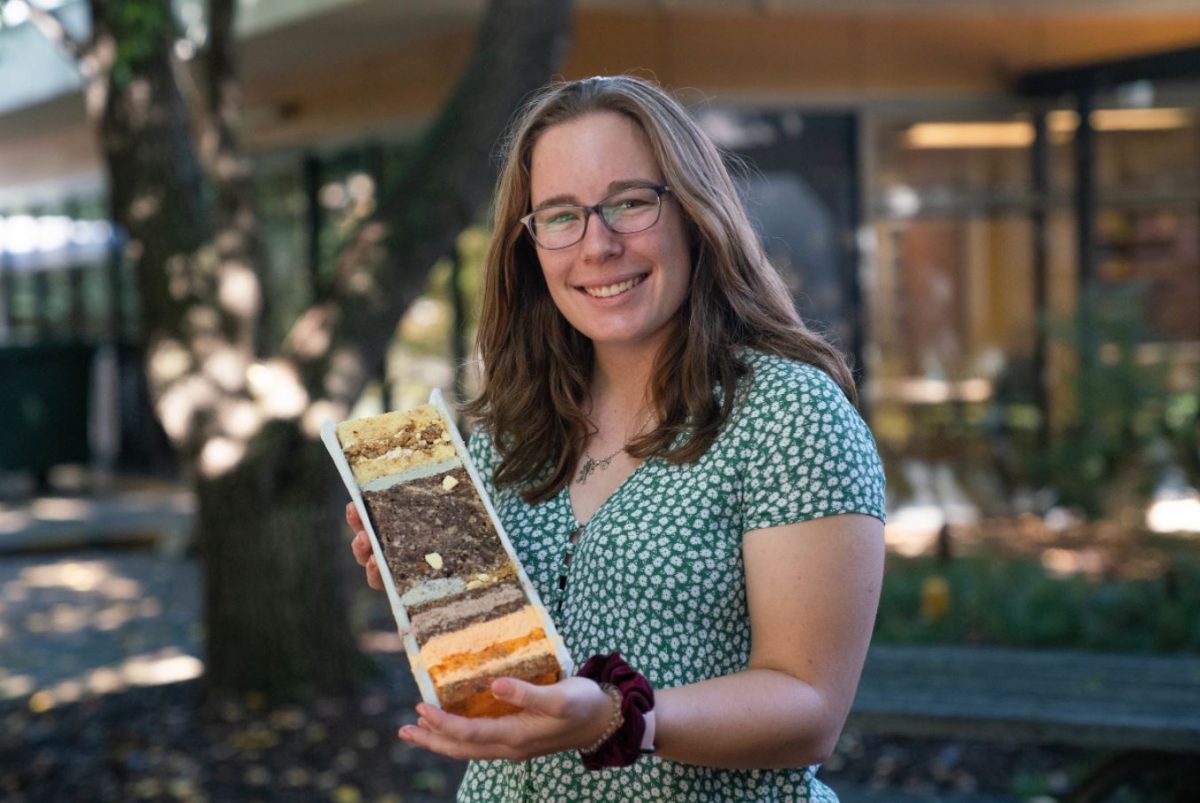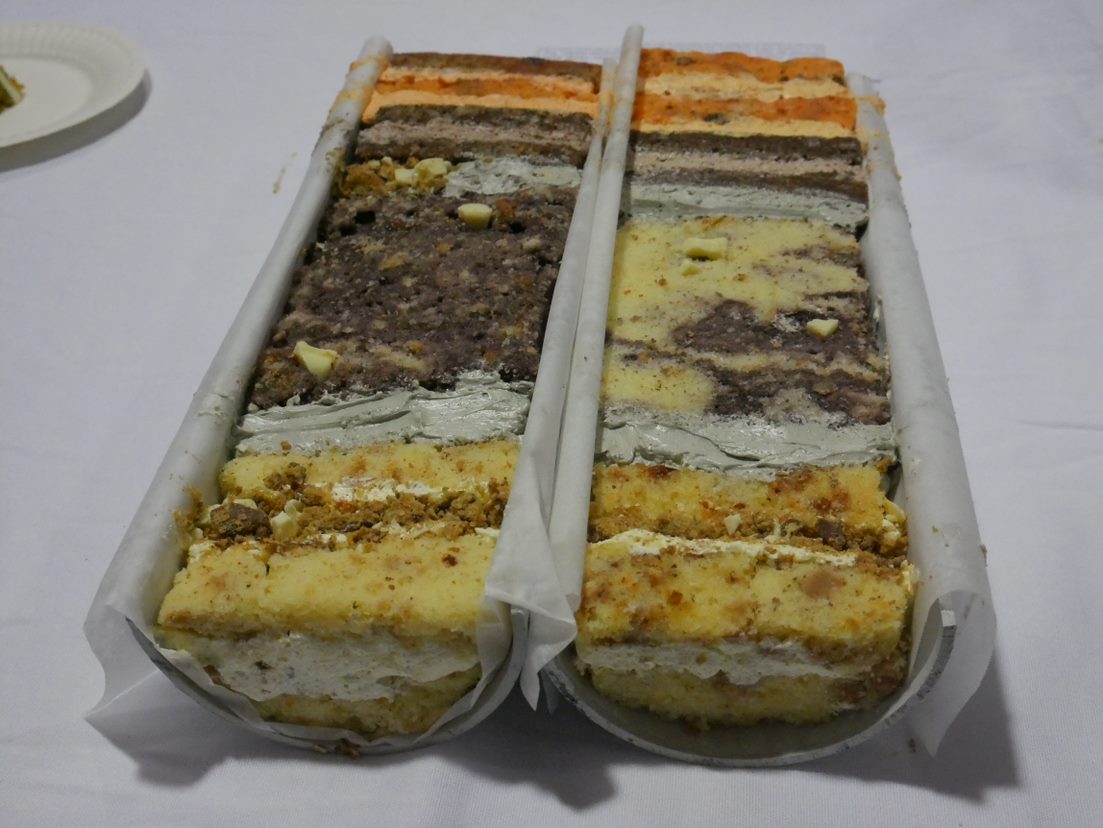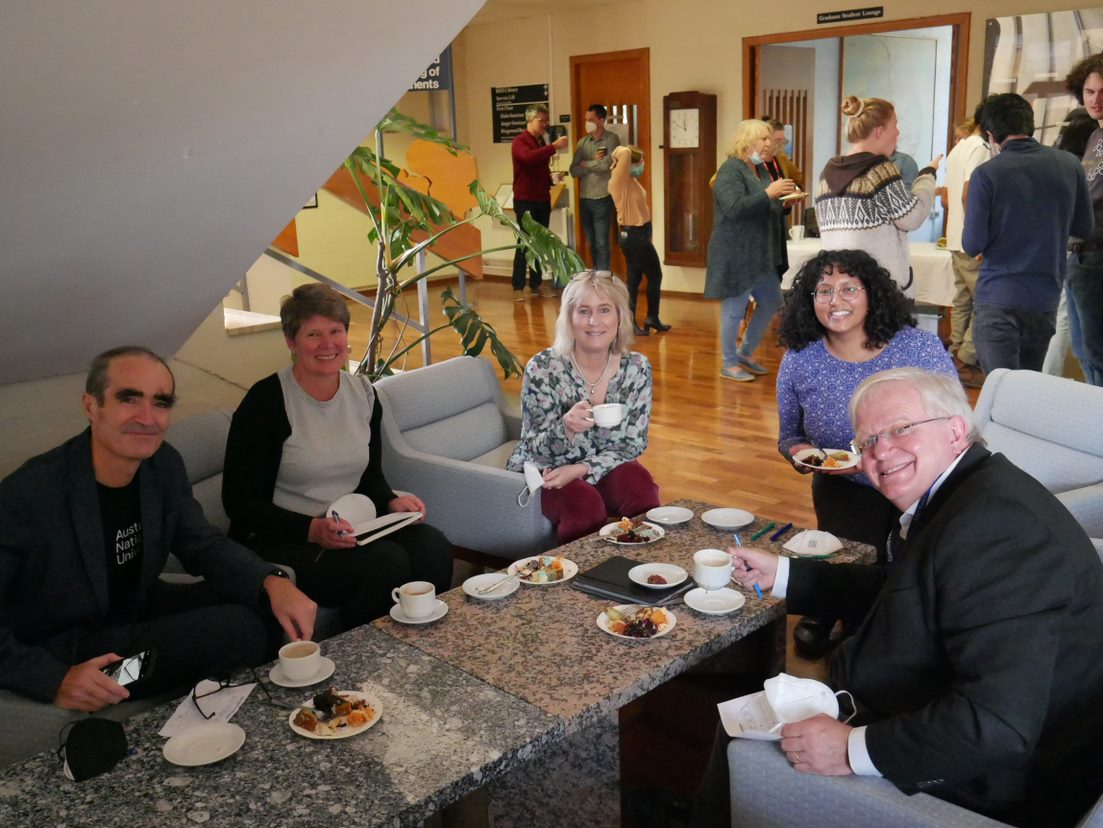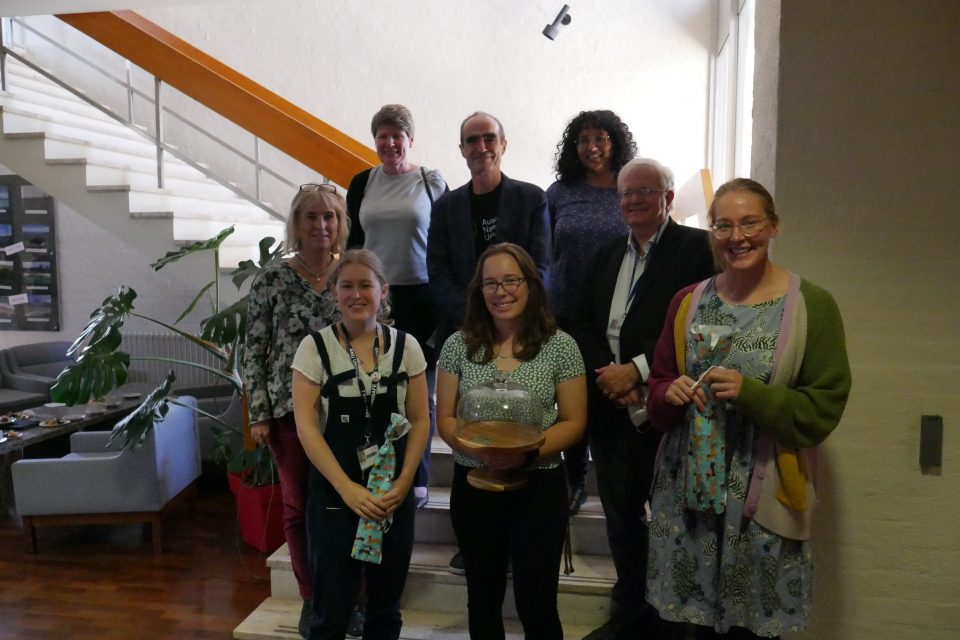
ANU PhD student Alysha Jones won this year’s ‘Bake Your PhD’ competition. Photo: ANU.
Parents the world over might try to encapsulate their child’s interests in a cake every time there’s a birthday, but it also happens every year at the Australian National University (ANU).
The annual ‘Bake Your PhD’ competition asks PhD and Honours students to represent their research area with a cake. The one that does it best is the winner, although it also has to look and taste the part.
PhD student Alysha Jones won this year’s competition for a long and layered cake inspired by the sediment samples she pulls from Lake George.

Alysha Jones’ cake faithfully replicates the sediment samples she pulls from Lake George. Tastes a lot better, though. Photo: ANU.
By studying the sediment, Alysha is hoping to get to the bottom of a mystery that has long plagued locals; namely, why the water level in Lake George fluctuates between empty and full.
Her cake representation passed all the criteria with flying colours according to the judges, who include Vice-Chancellor Brian Schmidt and former competition winner Tharika Liyanage.
Tharika says Alysha was “super stoked” – if a little surprised – and as a prize, received a cake stand with her name engraved on it.
“She’ll now be remembered forever as the cake baker that won the 2022 competition,” she says.
Tharika has participated several times herself, winning in 2018 with a cake representing her molecular biology work.
She says the competition was started a few years prior by a couple of PhD students who wanted to take a tradition within the ANU Research School of Earth Science further.
“Cake eating and baking have always been a big part of the social culture here. We even have Cake Friday.”

Having cake and eating it too, with ANU Vice-Chancellor Brian Schmidt (far right) and Tharika Liyanage (right). Photo: ANU.
Every year around May, the ANU already holds a student conference, where students share their research projects with other students and the wider community. Why not throw cake into the mix?
“They students came up with this idea of ‘baking your PhD’, where you communicate your science through the medium of cake.”
Tharika says some projects lend themselves to eggs and flour more easily than others, and this is especially the case with Earth science.
“You’ve got people studying various rock samples and corals, so we’ve seen some really beautiful ones over the years. There was one student who was studying corals and the bands in coral, where we get our climate data. So she made a layered cake where every layer had a different meaning.”
In Tharika’s case, it wasn’t so easy.
“My project isn’t a very visual one. I’m looking at molecules I can’t even see with my eyes. So I had to think of a way I could represent this in an abstract way.”
Her field of research deals with fossilised biological molecules released by bacteria, algae, fungi, and other micro-organisms and captured in rocks.
“We find molecules in rocks but we don’t know what particular organism created this molecule in the past, so I look for clues in the rock,” she says.
“It’s a way for us to track the bottom of the food web and our ecosystems through time.”





Using this analogy, Tharika gathered all manner of interesting ingredients, baked them into a cake, and asked the judges to use their own detective skills and senses to figure out what those ingredients were.
In the end, she says they failed to pick up on the parsnip, walnuts, and various spices, but “it was really fun watching them trying to figure out what was in it and debating amongst themselves”.
ANU might have been the first to ‘bake PhDs’ but it hasn’t stopped there – it’s gone worldwide.
“We’ve been sharing it on social media and blogs and it’s been picked up by other universities as a great science communication tool. It’s fun and creative, and we also get to eat it in the end.”












